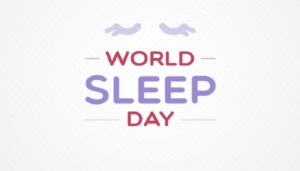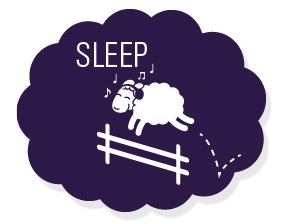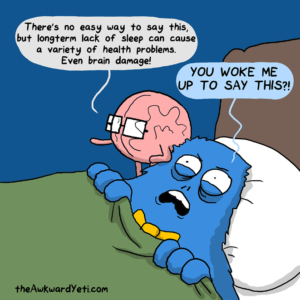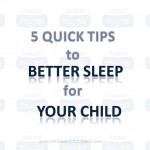Sleep Well, Be Well | Marie Reynolds

“Sleep is the underpinning of our entire well-being. For centuries people thought that sleep was a time of inactivity that the brain was resting. But all the new science proves that the opposite is true — that during sleep the brain is in a state of intense activity, which is necessary for us to fully recharge and be productive, creative and truly connect with ourselves and others during the day.” ~ Arianna Huffington, formerly of The Huffington Post and author of The Sleep Revolution: Transforming Your Life, One Night at a Time
Every year on the third Friday of March we honor the active, important process of Sleep on World Sleep Day. In 2018 the theme was Join the Sleep World, Preserve Your Rhythms to Enjoy Life, focused on the importance of circadian rhythms in healthy sleep.
What are circadian rhythms?
The word circadian originates with the word cycle. No doubt you’re familiar with the term menstrual cycle. Well our bodies have other cycles as well: rhythms in body temperature, hormone levels and how alert we are; these are circadian rhythms. They are produced by biological clocks within our bodies. Environmental factors such as sunlight, artificial light and the blue light from TV and electronic device screens can also affect them.
Following our bodies natural rhythms is important for our physical, mental and sleep health. Unfortunately, our modern, heavily scheduled, technologically crammed lifestyle is anything but natural. Even our children may go to bed at varying times depending on the time we are able to get them home, and how much homework or other activities are on their plates. The morning commute, and an early start to the school day mean having to get them up at the crack of dawn, often with a fight because the schedule has disrupted their circadian rhythm.
Creating a Sleep Schedule
A regular schedule, including having a set bedtime and wake-up time is important for overall health and sound sleep—one of the three pillars of good health, along with a balanced diet and healthy exercise. Sleep, like exercise and nutrition, is essential for good metabolic regulation in children. Lack of sleep or poor quality sleep is known to have a significant negative impact on health in the long and short term. There is evidence of a link between length of sleep and childhood obesity— most apparent in girls— due to the effect of day-to-day variability of sleep-wake timing on weight regulation. The sleep chart below outlines the average length of sleep needed at various ages and stages of life (Courtesy of http://www.sleepaidresource.com/sleep-chart.html ).
SLEEP CHART BY AGE |
||
| Age |
Total Sleep Needed |
Additional Notes |
| 1-4 Weeks | 15-16 Hours | Newborns are developing their internal biological clocks |
| 1-4 Months | 14-15 Hours | Regular sleeping patterns begin and longer night sleeping |
| 4-12 Months | 14-15 Hours | Important to establish regular sleeping patterns at this time |
| 1-3 Years | 12-14 Hours | Naps remain important to sleep health |
| 3-6 Years | 10-12 Hours | Naps will become shorter |
| 7-12 Years | 10-11 Hours | Bedtime gets later |
| 12-18 Years | 8-10 Hours | Teens may need more sleep |
| Adults | 7-8 Hours | Times will greatly vary |
Quality of sleep is just as crucial as length of sleep. Believe it or not, some of the most important work that your child’s brain can do for their intellectual, emotional and physical well-being takes place while your child is asleep! Breathing regularly during sleep is critical to maintaining well-being and health. One of the most common issues affecting children’s sleep is poor breathing due to issues such as enlarged adenoids, sleep apnea (the interruption of the breathing function during sleep), sinusitis, and even nasal allergies. If you think your child may be affected, consult your doctor for referral to an appropriate specialist.
Whatever the cause, poor quality sleep may have a negative effect on your child’s attention span, memory recall, and learning. Behaviors and emotions are also affected. For example, some children suffering from poor quality sleep show symptoms that mimic ADHD. Regular, quality and restorative sleep may just be the prescription for your child’s irritability, hyperactivity, moodiness, or anxiety.
The bottom line is that healthy sleep will improve children’s overall wellness and development. The World Sleep Society has created the 10 Commandments of Sleep Hygiene for Children [Ages birth to 12 years] (See below) The number one tip for good sleep health is establishing a nightly bedtime routine that could include:
BEDTIME ROUTINE
- Have a light snack
- Take a bath or have a warm shower
- Put on pajamas
- Brush teeth
- Read a bedtime story
- Say prayers
- Make sure the room is quiet and at a comfortable temperature
- Tuck child in bed
- Say goodnight and leave
Here are all ten of the 10 Commandments of Sleep Hygiene for Children:
10 Commandments of Sleep Hygiene for Children
- Go to bed at the same time every night, preferably before 9:00PM.
- Have an age-appropriate nap schedule.
- Establish a consistent bedtime routine.
- Make your child’s bedroom sleep conducive – cool, dark, and quiet.
- Encourage your child to fall asleep independently.
- Avoid bright light at bedtime and during the night, and increase light exposure in the morning.
- Avoid heavy meals and vigorous exercise close to bedtime.
- Keep all electronics, including televisions, computers, and cell phones, out of the bedroom and limit the use of electronics before bedtime.
- Avoid caffeine, including many sodas, coffee, and teas (as well as iced tea).
- Keep a regular daily schedule, including consistent mealtimes.
Setting schedules for children can be difficult. Please let us know how you manage a sleep schedule in your home, in the comments below.
References
Written by Marie Reynolds a Clinical Social Worker – Paediatric Psychotherapist who offers therapy for infants and young children with their parent(s).
Learn MoreLess is More….But Not With Sleep| Janelle Reid
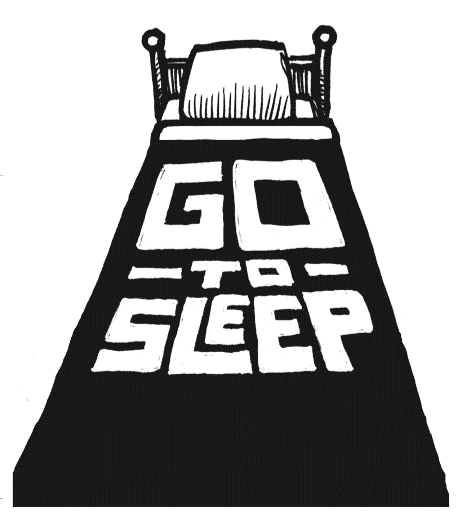
Sleep is an active function which our body requires for optimal performance. The body has a sleep cycle; while we sleep several tasks are operating simultaneously such as processing, restoration and strengthening. I bet you thought you were dead asleep! Poor sleep hygiene can affect our state of well-being resulting in an increased risk for physical and mental illnesses such as heart disease, stroke, cancer, reduced immune system, weight gain, anxiety and depression.
Time to Sleep
Moreover, children, adolescents and adults require varying hours of sleep for optimal body function. According to National Sleep Foundation, it is recommended that newborns to the toddler years (0-2 years old) should have 11-17 hours of sleep. Preschoolers to school aged children (3-11 years old) require 9- 13 hours of sleep. Teenagers to young adults (12-25 years old) require 7-10 hours of sleep and adults (26 and older) require 7-to 9 hours of sleep. Getting the recommended hours of sleep is important! Are you ready for a good night’s sleep?
The Sleep Cycle
There are two main types of sleep, rapid eye movement (REM) sleep and non-rapid-eye-movement (NREM) sleep. This cycle takes place throughout the night beginning with NREM sleep and transitioning into REM sleep. NREM and REM sleep alternate throughout a night’s rest.
During REM sleep the body becomes energized and dreaming takes place. Rapid Eye Movement sleep occurs approximately 90 minutes after falling asleep. Have you ever felt like you are falling or experienced sudden twitches while you are asleep? If you said yes, you are experiencing NREM sleep. This stage of sleep has three cycles and the human body moves from wakefulness sleep (stage one) to less responsive sleep (stage three).
Sleep and Mental Health for Children and Adults
On the other hand, a correlation between lack of sleep and mental health has been identified through several research studies. In fact, some studies concluded sleep deprivation in children and adolescents later resulted in some mental health disorders in adults; one example is depression. On the contrary, patients diagnosed with some mental health disorders such as anxiety disorder, post traumatic stress disorder (PTSD), obsessive compulsive disorder (OCD) and phobias may experience sleep deprivation.
In addition, substance use including prescribed drugs, legal and illegal substances can disrupt the sleep cycle which may result in sleep disturbance. It is best to avoid substances and get a good night’s rest.
Sleep Hygiene
Sleep hygiene relates to the routines and behaviours one can develop throughout the course of the day and before bedtime. This might include a regular sleep schedule, avoiding naps, getting out of bed within 5-10 minutes of being awake, curb your habit of reading or watching television in the bed, reduce caffeine intake, avoid substance use, ensure your bedroom is quiet and comfortable, and have some quiet time before heading to bed. Did you know exposure to natural sunlight helps to regulate your normal sleep-wake pattern? Get out and get some sunlight!
Let’s Count Sheep
Are you ready to sleep? Remember lack of sleep can trigger emotional distress and may result in mental health disorders. Therefore, ensure you develop good sleep hygiene, avoid substances, and get the required hours of sleep for optimal functioning.
Written by, Janelle Reid, Mental Health Counsellor & EMDR Counsellor
Learn MoreSleep and your Teen
 Sleep is as valuable in the teen years as in younger childhood. Too little sleep decreases cognitive function, and a teens ability to remember what they have learned.
Sleep is as valuable in the teen years as in younger childhood. Too little sleep decreases cognitive function, and a teens ability to remember what they have learned.
Take the time to read the link below and talk to you teen about planning and committing to a good night sleep.
Making sleep a priority is a lifestyle choice that quickly pays off. Better sleep helps young people learn more efficiently and improves their mood and athletic performance.
Making sleep a priority is a decision that every member of the family will benefit from.
Teens may model themselves on their sleep-deprived parents and peers and think they are supposed to get less sleep as they mature.
Weekend “catch -up” and sleeping in may be an occasional treat, but for a teen who is sleep deprived during the week sleeping isn’t usually enough to catch up on lost sleep-time and waking up more than an hour after regular waking time an actually make Monday mornings worse for everyone.
Sleeping in on weekends may be one of life’s small luxuries, and for many adults it is. However, when it comes to teenagers, sleeping in on weekends may be the first sign of an emerging sleep problem.
How can parents help their teens improve their sleep patterns?
- Talk about sleep, wake up time and bedtime with your teen.
- Don’t sleep in beyond an hour on the weekends.
- Separate “Social” from “Homework” and encourage your teen to focus on the work at hand (fixed half hour periods with quick 10 minute breaks might be helpful)
- Set a good example, make sleep a priority for yourself!
- Work together and live the Dream 🙂
Back to School Is a Great Time for Teens to Sleep | Stanford Center for Sleep Sciences and Medicine.
Learn MoreEarlier bedtimes may fend off Teen Depression
Earlier bedtimes may fend off teen depression – chicagotribune.com.
DOES SLEEP AFFECT BEHAVIOUR? YOU BET!
In the past years several studies have shown that a lack of sleep may cause teenagers to be cranky, fall asleep in class, struggle with exams, reduce their performance in sports, increase obesity, exacerbate asthma and actually lead to insomnia.
A new study confirms something paediatricians and parents already suspected: One key to having happy, healthy and less depressed children is to have earlier bedtimes.
The study was conducted by researchers at Columbia University and appears in the journal Sleep. It shows that adolescents and teens with strict bedtimes of 10 p.m. or earlier were less likely to be depressed and to have suicidal thoughts than classmates whose parents allowed them to stay up until midnight or even later.
HOW MUCH SLEEP DOES A TEENAGER NEED?
Another study published in the Journal of Adolescent Health examined the sleep habits of more than 12,000 high school students and found that a mere 8 percent are getting at least the recommended nine hours of sleep per night.
The Columbia researchers found that bedtimes set by parents were almost as important as the number of hours slept. Kids who were sent to bed at midnight or later were 24 percent more likely to be depressed and 20 percent more likely to have thoughts about suicide compared to teens whose lights had to be off by 10 p.m.
TEENAGERS SHOULD KNOW WHEN TO GO TO BED…RIGHT?
Teens who have a set bedtime are more likely to get enough sleep. The researchers surveyed 15,000 children in grades 7 to 12 and their parents, and found that more than two-thirds of the adolescents said they went to bed when they were supposed to. For 54 percent of kids, that’s 10 p.m. or earlier on school nights. Another 21 percent must go to bed by 11 p.m., and 25 percent go to bed at midnight or later.
WHAT CAN I DO? THEY DON’T LISTEN TO ME…
Many little changes can help you and your teen have a good night sleep. Routine is important. Talk to your children about the need for sleep. To understand sleep a little better check out this website. Bedtime should be agreed on by everyone. Kids from age 12 to age 15 years need 9-9.5 hours sleep, which is roughly one hour MORE than their 7-12 year old siblings may require! Occasional “all-nighters” to finish a project or cram for a test are devastating to the body, the brain and the teenagers memory. These must be avoided. Help your teen to plan ahead so that this is not a regular part of their school life. On weekends and holidays don’t vary bedtimes more than 2-3 hours. Naps should not be for more than 30 minutes.
Exercise (half an hour three times a week), at least 2 hours before bedtime can help teens to get a good night sleep. Restrict caffeine intake in teenagers (that included Cola drinks!) with no soda or coffee after 4pm. Nicotine in cigarettes, chews and other devices is a stimulant and must also be avoided. Smoking is bad for your health in SO many ways.
BEDTIME RULES FOR TEENS
- Relax the mind: Begin to unwind one hour before bedtime. Avoid scary or action packed movies just before bed. Opted for a book, writing in a journal or even a soothing bath in the hour before bedtime. Take some time to prepare for the next day – take out clothes and equipment for after school activities, make lunch and a healthy snack to carry to school. Freeze some water for a cool drink the next afternoon.
- Turn off all electronics (laptop included) 1/2 hour before they head to bed.
- There should be no TV in the bedroom! We at Caribbean Tots to Teens are strong advocates of parents ACTIVELY CONTROLLING exposure to electronic media at every age. If there is a TV in the bedroom it should NOT be on in the background at bedtime.
- Cell phones should be charge in the kitchen, or next to Mom’s bed if that is what it takes.
- ensure your child feels safe at night. Reassure them of your presence and where appropriate be sure they know how to raise an alarm (or press a panic button) if they feel threatened.
Some medications, depression, severe airway obstruction / sleep apnoea (usually due to allergies) and other medical factors can also contribute to a lack of sleep for your teen. Talk to your teenager about what is going on with them and the importance of a good nights sleep. Make a plan for your children that everyone can embrace. If you think more help is needed see your doctor or adolescent specialist.


